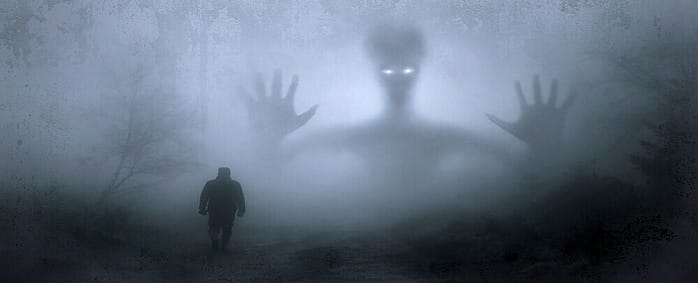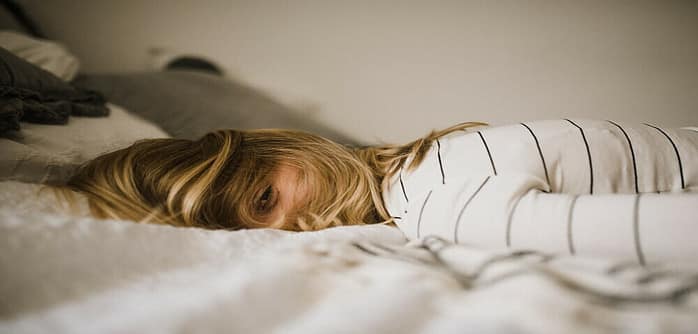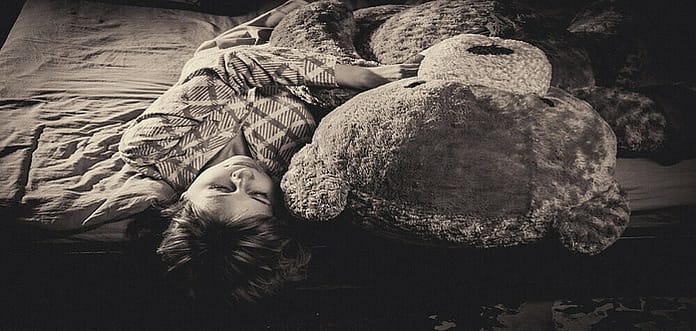
One thing you can probably count on after significant loss is the matter of grief and sleep issues. Why? Because when you lose someone close to you, it’s not just your waking life that’s turned upside down. Your nights, too, can become a landscape of restlessness and uneasy dreams. Grief triggers a storm of physiological and emotional responses that can wreak havoc on your sleep patterns.
You might have noticed that, after a major loss, your sleep isn’t quite what it used to be. This can often be explained by the acute stress response, which naturally, sends anything that was normal for your body before completely out of whack. When you’re trying to catch some shut-eye after loss, these stress responses can kick into high gear, keeping you alert when you least want to be.
This isn’t just about losing sleep; it’s also about the hard work of processing loss, known as grief work or what I often call, the “grief journey.” It’s the emotional labor of coming to terms with this absence, and it can be as exhausting as any physical task. Such deep levels of fatigue can make it challenging to find a restful state, even when you’re bone-tired.
I have never been a great sleeper anyway. I’m one of those people who wakes up when a feather hits the floor, I have to wear earplugs and it has to be pitch black. I also wake up a billion times during the night for no reason. Well, one might be to go to the bathroom. But after loss, I have had, more than anything, an even more relentless issue with my sleep patterns, which I will go into further below.
The Haunting Reality of Nightmares Related to Loss
If you’ve ever experienced the death of someone close, you might be familiar with the vivid, unsettling dreams that follow. These aren’t your usual nightmares; they often replay the loss or feature the deceased in scenarios that can jolt you awake, heart pounding. I’m going to explain why this happens and how it reflects the immense psychological impact of your loss.
Nightmares after a significant loss are often a manifestation of unresolved grief and a mind trying to process the trauma. They’re a part of what many refer to as grief dreams, where the subconscious mind wrestles with the reality of a loved one’s absence. You might have very intense dreams emerge and they differ in their form, content, and emotional residue from more mundane and boring dreams.
Nightmares have been an enormous issue for me. I can pinpoint when mine began, which was during the worst of my caregiving days for my husband when his cancer took an extreme nosedive. And these nightmares got worse after he died. I continuously relived his illness and death in my dreams, such as all of the days and nights in the hospital and hospice, while I desperately hoped for a miracle that never came. I kept telling myself that this dream stampede after my loss was normal, especially after I researched it, and I just held onto the hope that it would get better after awhile. For lots of people suffering from this, they do improve. Well, it never really did, for me. I continued, even after seven years, to have 2-3 nights a week where I kicked or gasped or cried in my sleep and woke myself up in a cold sweat.
Managing these disturbing dreams can be tricky. I’ll talk further down about what treatment I wound up having to do for this personally. But there are strategies you can adopt that may help ease their frequency and impact. These include establishing a calming bedtime routine, engaging in therapeutic activities during the day (maybe art!), and perhaps most importantly, allowing yourself to grieve.
Insomnia Amidst Mourning: Struggling to Find Rest
*As an Amazon Associate, I may earn from qualifying purchases. Links contained in this post are affiliate links for Amazon and/or Blick Art Materials and I will earn a commission if you make a purchase at no additional cost to you.
If you’ve recently lost someone dear, you might find the nights particularly tough. Insomnia can sneak into the life of a mourner like an unwelcome shadow, looming large and turning the solace of sleep into a nightly battle. This isn’t just about the difficulty in falling asleep; it’s also about the way chronic wakefulness can chip away at your ability to cope with loss.
You’re going to find out that you’re not alone if you’re staring at the ceiling night after night. A significant number of individuals experiencing grief report problems with insomnia. Without the restorative power of sleep, day-to-day functioning becomes more challenging, and the emotional pain of loss can feel amplified. I know that after losing my husband, I spent many nights awake. If I did fall asleep, it was for short stints at a time and they were filled with nightmares. I started having to keep my Kindle and Alexa and even stuffed animals in the bed with me so I had constant distraction at night when I could not sleep.
That being said, there are practical steps to help manage insomnia. Establishing a regular sleep routine and creating a restful environment are good starts. In my opinion, shying away from caffeine-laden drinks and foods with tons of sugar right before bed is pretty helpful. Seeking comfort in relaxing pre-sleep rituals can also contribute significantly to better sleep. One of mine is to have a cup of hot tea. If you happen to be a tea drinker, Yogi Honey Lavender Stress Relief is one of my favorites to have at night. I also like to indulge in a warm shower before it’s time to go to sleep.
On the flip side, you might find yourself sleeping way too much. Excessive sleep is also a way of dealing with grief. Your body and mind are exhausted from dealing with trauma and you not only want rest but a way to escape.
When Losing a Spouse Transforms Sleep: A Unique Grieving Process
I’m going to share with you how the loss of a spouse can transform one’s sleeping patterns. Believe it or not, this specific type of loss often carries unique implications for sleep. If you are a widow or widower, you’re going to find out about the deep psychological impact and the kind of sleep disturbances that might follow.
The bond between spouses is profound, and its severing can lead to a form of emotional and physical disarray that presents itself prominently during the night. Sleep becomes entwined with the grieving process, often reflecting the turmoil within.
Many individuals report drastic changes in their sleep after the death of a spouse. Some experience restless nights filled with tossing and turning, while others might fall into a deep sleep that’s riddled with interruptions, often from vivid dreams or waking thoughts connected to their loss.
In my opinion, seeking support during this taxing time is essential. It isn’t just about emotional healing, but also about finding new routines and habits. The emptiness on the other side of the bed is a stark reminder of loss, and adjusting the sleep environment can sometimes help.
Don’t worry too much about unpredictability in your sleep patterns right after the loss. You can always adjust your approach down the road as you navigate through the various stages of grief. Choose something that resonates with you, whether it’s incorporating a cherished item of the loved one into your sleep space or establishing a new bedtime ritual. After my husband died, I had to pile up pillows and stuffed animals on his side of the bed in order to create the illusion that I wasn’t alone. When it was time to try to sleep, I would lay the pillows lengthwise and then cover them with the blanket so it looked like something was there. This ended up helping me for those many times that I woke up during the night because it felt like something was there by my side, even though my mind knew that it was just a pillow.
A lot is happening very quickly when you’re dealing with grief, especially after losing a spouse. That’s why it’s important to acknowledge that sleep issues during this period are not only common but also manageable with the right kind of support and interventions.
Navigating Sleep Issues Post-Loss: Treatments and Therapies
I understand that tackling sleep disturbances can be one of the hardest parts of dealing with grief. It’s one thing to navigate the emotional minefield of loss, but sleep issues add an extra layer of difficulty. You’re already exhausted from the day-to-day demands of processing your loss, and now you’re facing nights of tossing and turning or sleeping too much. But there’s hope, and there are ways to get back to a more restful night’s sleep.
Counseling and therapy often serve as a cornerstone for treating sleep issues linked to grief. Talking to a professional can help you understand and address the underlying emotions that disrupt sleep. It’s not just about getting tips for better sleep habits, but also about healing some of the pain that keeps you awake at night or makes you retreat into excessive sleep.
Apart from therapy, there are practical sleep hygiene practices that can be enormously beneficial. Establishing a regular sleep schedule, creating a comfortable sleep environment, and perhaps engaging in calming activities before bed are steps you can incorporate into your routine. These aren’t just platitudes; they’re tried-and-true methods that can have a significant impact.
For some, medication may be necessary—at least in the short term—to break the cycle of sleeplessness. Remember my nightmare issue from above? After waiting for these night terrors to get better for over seven years (and after trying lots of yoga, walking, and natural supplements), I finally gave up and went to the doctor, who ended up having to prescribe me medication that targeted what was clearly a form of PTSD. Of course, all sleep isses you may be having should be under the guidance of a healthcare provider, as medications can carry side effects and should be carefully managed. So, just because I needed medication doesn’t mean you will. Always speak with your doctor and therapist about your own individual needs.
Ultimately, patience and self-compassion are vital. Your sleep patterns might not return to normal overnight, and that’s okay. Be gentle with yourself as you navigate this journey, and remember that it’s okay to ask for help. There’s a wealth of resources and support networks available to you, from grief support groups to sleep specialists. You’re not alone in this, and step by step, you can find your way back to peaceful slumber.
As always,
take care of yourself!
Nikki




What I learned when grieving over a lost one, is that it even affects my sleep for the worse than usual, as I can’t stop my mind from racing and thinking about the person or animal that I lost, it is literally heart breaking. I don’t want to go back to sleep medication though; although they are supposed to be taken short term, I found myself easily addicted to them and now just try the usual things, like indeed a good sleep pattern. thanks for the advise!
Hi Lizzy,
This is it exactly! Grief can completely wreck our ability to get a good night’s rest. I had the same issue, not able to stop the heartbreaking thoughts throughout the night. I’m sorry that you’ve had this pain. I don’t blame you for not wanting sleep meds. I usually avoid medication because my body is super sensitive to them. But the one I am on at this time is only targeting my nightmares rather than being an actual sedative so I’ve been able to skip nights without dependency issues.